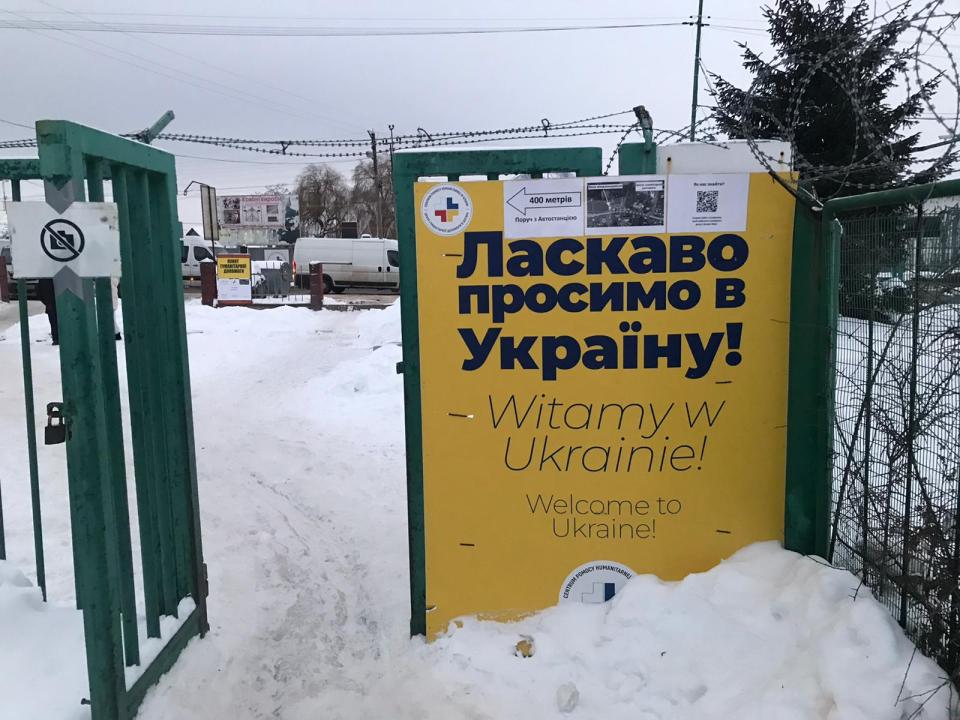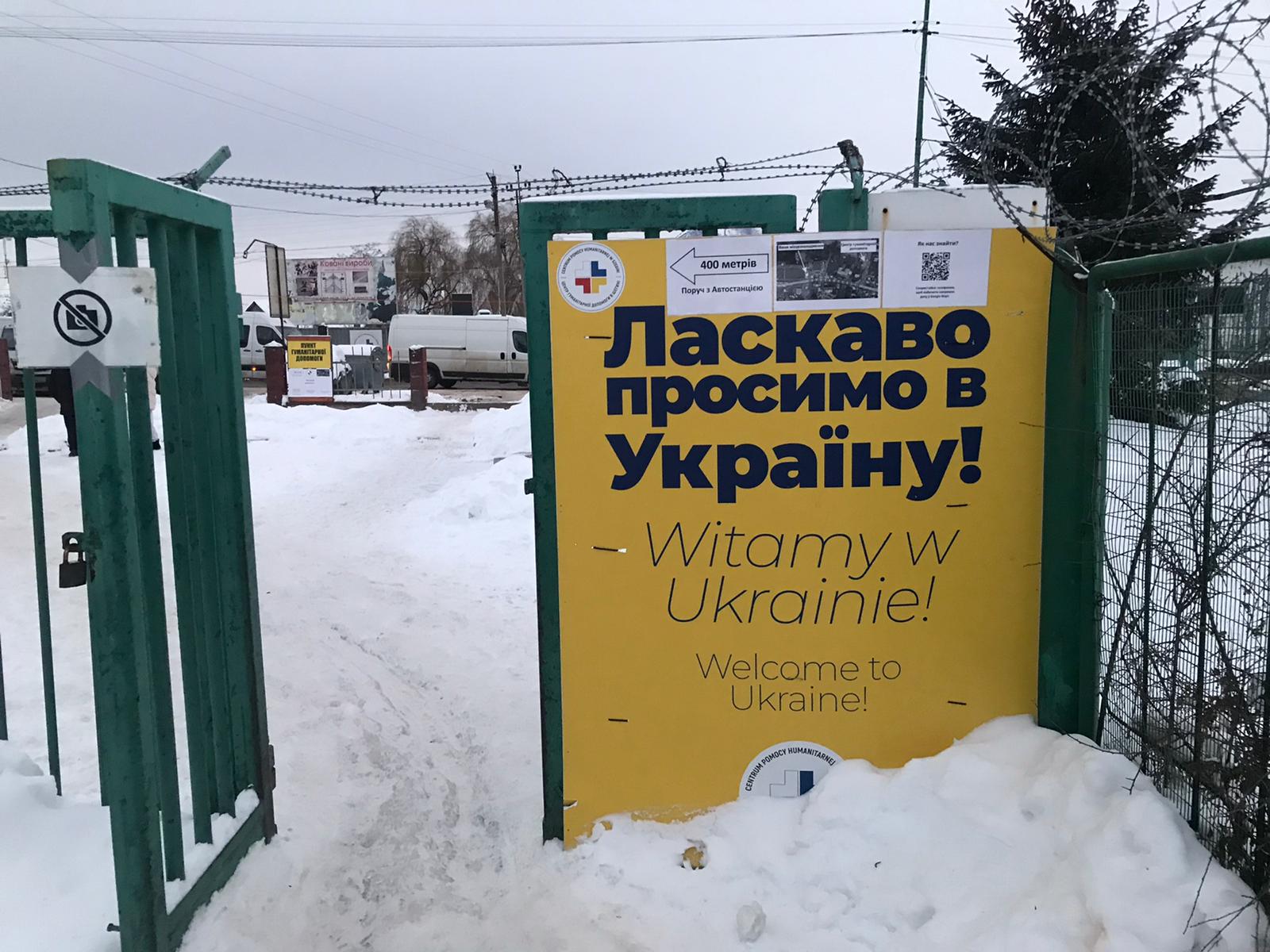‘You are safe here,’ says a sign at the railway station in Przemysl, less than ten miles from the Ukrainian border. The city was one of the first in Poland to open its doors to those fleeing the war – but I’m travelling through it in the opposite direction. Last year, I was one of 152,000 Ukrainian refugees to end up in Britain. Now, I’m going home to see my family again, flying to Poland, then taking the train to Lviv. At least, that was my plan. At the station, I learn that Russian missiles have delayed the train. Six hours later, I’m told it may not arrive at all. So Plan B: take a taxi as close as possible to the pedestrian border and then trudge the final mile or so through the snow. As I walk, I wonder what I’ll see on the other side. Will I recognise my own country? The passport checkpoint is almost deserted. Once, there was a mile-long queue of refugees trying to flee, so I take the emptiness as a good sign. Not so long ago, there was talk of a ‘second wave’ of refugees, fleeing the misery after missile strikes wiped out electricity, gas and water supplies. But Ukrainians have stayed, ready to prove Vladimir Putin wrong.
I keep walking through the snow and see a poster, ‘Welcome to Ukraine’. My heart leaps. But it’s only on the bus to Lviv, when I squeeze into my place and listen to passengers grumbling in Ukrainian, that I finally feel back at home. Even on this journey, though, things are different. People are jittery, knowing missiles can strike at any moment. We hear a bang and the driver slams on the brakes, looking up at the sky. ‘It was the door!’ passengers shout. The bus continues.
If Putin thought that his winter blitz would destroy morale, he ought to walk the streets of our towns and villages. Among the Christmas decorations in the windows you can see dolls with Putin’s face, hanging in a noose. Even the children’s letters to St Nicholas – Santa Claus – reflect Ukraine’s mood. A selection of them was recently published and one by six-year-old Katrusya Shita demonstrates the change: ‘I want Grandpa Vasyl to return from the war alive and well. And for Putin to die.’
When I arrive in Lviv there are many soldiers. Some are arriving for training before going to the front line; others are coming back, missing an eye, arm or leg. I run to the railway station: I need to be there by midnight because of the curfew. In Ukrainian cities the streets are kept empty overnight, leaving police free to hunt Russian mercenaries. But my train isn’t until 3 a.m., so I pass the time gazing at the television in the waiting room. I watch the same entertainment channel where, as a child, I’d watch Zelensky’s comedy shows. It’s now broadcasting uncensored stories of war, showing ragged bodies of Russian soldiers and a lot of blood. Among the adverts are tips on how to survive without electricity and heating; even how to install electricity generators. Getting this wrong can be fatal: some families have been killed as they slept by carbon monoxide poisoning. War claims lives in all kinds of ways.
My train arrives in my hometown of Khmelnytsky Oblast at dawn and, as I get out, I hear my first air-raid siren. My mum meets me, holding back tears. We can’t believe we’re all back together, all still alive. My eight-year-old brother has grown almost four inches. Back home, he follows me everywhere. We have a few hours of electricity every day, so our routine changes. We heat the house by burning wood, wash using bowls of water and cook by candlelight. My brother studies by the light of my mum’s mobile phone. It’s cheaper than battery-operated torches, which have become prohibitively expensive. I’ve never seen my village look as poor and dilapidated. Shops are open, but the price of many things (eggs, sunflower oil) has trebled. Basic repair work is no longer carried out because local government has no funds and many of those who would do the fixing are now fighting. Walking around, you can see plaster falling from apartments. Blocked drains are neglected, turning roads into swamps.
Normally I’d be celebrating Christmas this week. Ukraine used to mark it on 6 January, in common with Russia. But this year my family, like millions, celebrated on 25 December instead, in common with our European allies. Sitting in darkness, my family offers thanks for being together, for being alive. We pray for our soldiers, the people whose sacrifice has meant my country has survived. The refrain ‘Glory to Ukrainian armed forces’ is heard constantly on TV. The other slogan is ‘Together, to victory’. There is gratitude in those messages. And hope that 2023 will be the year Ukraine ends the war – by winning it.
Svitlana Morenets writes a weekly email, Ukraine in Focus, for The Spectator. Sign up for free here.








Comments